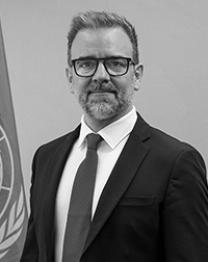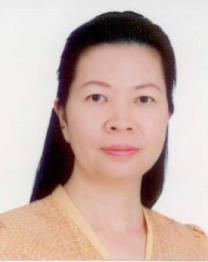
The UNCTAD16 Parallel Event, "Expanding productive capacities to enhance developing countries’ financial sustainability" identified key strategies for building productive capacities and strengthening financial sustainability.
Developing countries face a 4 trillion US dollar annual finance shortfall, made worse by mounting debt, low exports, and a growing digital divide. This leads to vulnerability to shocks, weak growth, missed development opportunities and heightened debt burdens.
The event explored:
- How to boost productive capacity to unlock affordable finance
- Policy tools for generating export growth, resilience and inclusive sustainable development
- New financing mechanisms like debt swaps for productive capacities development
- UNCTAD’s Productive Capacities Index and Sustainable Development Finance Assessment Framework
Key takeaways
Strengthening productive capacities through well-sequenced and coordinated policies is essential for structural transformation, economic resilience, and long-term financial sustainability.
When countries can produce, innovate, and export more value-added goods and services, they generate revenue, reduce debt risk, and drive inclusive development.
Developing countries must expand their productive capacities through intensified human capital development, industrialization, innovation, value addition, and diversified production to achieve development and long-term fiscal stability.
The Productive Capacities Index (PCI) is a vital tool in this effort, helping governments identify development gaps, prioritize sectors, and design evidence-based policies.
Together with technical support through Holistic Productive Capacities Development Programmes and frameworks like the UNCTAD Sustainable Finance Assessment Framework, building on global good practices and lessons, UNCTAD enables countries to move from diagnosis to action, aligning investments with national strengths and long-term transformation goals.
To achieve financial sustainability, countries must act decisively to channel resources to regenerative productive capacities development, starting from domestic resource mobilization
This means investing strategically in productive capacities while ensuring policy coherence, aligned with national priorities and market needs, as demonstrated by the experiences of Kenya and Cambodia.
At the same time, unlocking domestic revenues requires bold institutional reforms. The Gambia’s use of tax reforms, digital tools, and improved compliance shows how countries can expand fiscal space and reduce reliance on external aid.
Strengthened institutions are also key to tackling illicit financial flows, building investor confidence, and supporting the shift from informal to formal economies. Additionally, other funding sources from Foreign Direct Investment (FDI) to loans are critical but need to be well regulated and managed.
With coordinated policies and targeted investment, countries can build resilient, self-reliant economies powered by sustainable financing, while reducing financial risk.
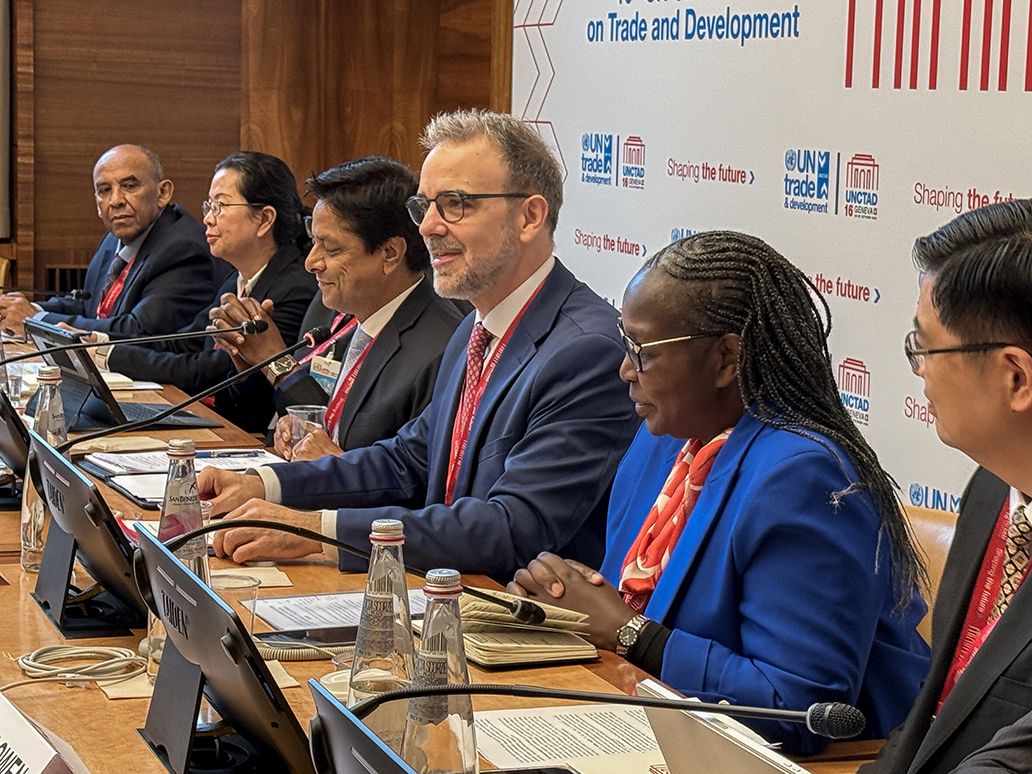
Moderator: Ratnakar Adhikari, Executive Director of the Executive Secretariat, Enhanced Integrated Framework (EIF).
Available finance for developing countries falls $4 trillion short of what is required annually. With high debt servicing costs and sluggish export earnings, the ability of developing countries to build socioeconomic resilience is compromised.
Moreover, underdeveloped productive capacities and an increasing digital divide limit the ability of developing countries to expand participation in global markets and export more value added goods and services. This in turn negatively impacts their external and public sector financial sustainability.
Fostering requisite productive capacities will enable developing countries to address structural and persistent socioeconomic vulnerabilities and achieve inclusive growth and development.
UNCTAD has developed the productive capacities index and a sustainable development financial assessment framework, including a new policy dashboard, to support policy decisions of developing countries around productive capacities and financial sustainability.
This parallel event will identify practical measures to assist more vulnerable economies to accelerate the development of productive capacities to boost export earnings and increase government revenue streams.
This includes seeking new mechanisms, such as debt swaps, for building productive capacities.
Programme
Opening remarks:
- Pedro Manuel Moreno, Deputy Secretary-General of UN Trade and Development (UNCTAD)
High-level panel and interactive discussion
Questions:
- How can a coordinated sequencing of productive capacity- enhancing projects expand the capacity of countries to access affordable long-term finance?
- What policy options do developing economies have to boost their productive capacities development?
- How do investments in productive capacities affect external and public sector financial sustainability, and how can they be managed?
- What support can UNCTAD provide to assist countries in expanding their productive capacities and ensuring financial sustainability, such as through mechanisms for debt swaps for productive capacities?
Speakers:
- Baboucarr Ousmaila Joof, Minister of Trade, Industry, Regional Integration and Employment of The Gambia
- Lee Kinyanjui, Cabinet Secretary for Investments, Trade and Industry of the Republic of Kenya
- Tekreth Kamrang, Secretary of State, Ministry of Commerce of the Kingdom of Cambodia
- Xiaowen Fu, Head of Department and Professor in Engineering Management, Department of Industrial and Systems Engineering, Hong Kong Polytechnic University
- Taffere Tesfachew, Senior Advisor on Economic Transformation in Africa, Tony Blair Institute for Global Change (TBI)
- Gilson Pina, National Director for Planning, Ministry of Finance of the Republic of Cabo Verde
Moderator:
- Ratnakar Adhikari, Executive Director of the Executive Secretariat, Enhanced Integrated Framework (EIF)
Mr. Pedro Manuel Moreno of Spain, is Deputy Secretary-General of UNCTAD.
He has over 20 years of experience of working for multilateral and intergovernmental organizations in programme, management and strategic positions both in the field and at headquarters.
He was Deputy Secretary-General of the Communication for Development Committee at the Spanish National Commission with the United Nations Educational, Scientific and Cultural Organization (1999-2004), and for the United Nations Development Programme, at the Country Office in Ecuador and, in New York City, as part of the Human Development Report team, at the Regional Bureau for Latin America and the Caribbean and at the Executive Office.
In 2014, he was appointed Chief of Staff of the Ibero-American Conference in Madrid, where he coordinated key political processes and South-South cooperation projects.
In September 2021, he was named Chief of Staff and Director of the Office of the Secretary-General of UNCTAD.

The Honourable Baboucarr Ousmaila Joof is The Gambia’s current Minister of Trade, Industry, Regional Integration and Employment.
Prior to this role, he served as Minister for Public Service, Administrative Reforms, Policy Coordination, and Delivery. Born in The Gambia in 1963, Hon. Joof holds a Master’s Degree and a Postgraduate Diploma in Management from the University of Auckland, New Zealand. He also earned a Bachelor of Science degree from the University of Hull, UK, in 2002, and a Teacher Training Certificate from The Gambia College in 1989.
His career began in education, teaching in primary schools across The Gambia from 1988 to 1996. During this time, he actively represented teachers as a grassroots volunteer for the Gambia Teachers’ Union (GTU). In 1996, GTU leadership entrusted him with establishing a cooperative credit society for its members. Hon. Joof went on to lead the Gambia Teachers’ Union Cooperative Credit Union (GTUCCU) as CEO for 26 consecutive years.
He is a graduate of the inaugural Africa Development Educators Program (2014) and an International Credit Union Development Educator (2016), following training in the United States. Hon. Joof has served as a resource person and trainer for the Gambia Teachers’ Union, a technical advisor to the National Association of Cooperative Credit Unions of The Gambia, and a contributor to ACCOSCA (African Confederation of Cooperative Savings and Credit Associations).
Beyond his technical work, Hon. Joof is also known as an inspirational speaker, having addressed numerous national and international forums.
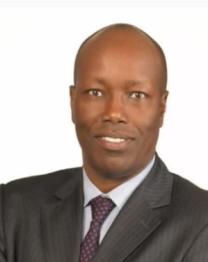
Hon. Lee Kinyanjui is the Cabinet Secretary for Investments, Trade and Industry of the Republic of Kenya.
He is the co-chairperson of the Economic Partnership Agreement (EPA) Council of Kenya and the European Union.
Previously, he served as the Governor of Nakuru County from 2017 to 2022. During his tenure, he oversaw the elevation of Nakuru Municipality to city status and was named the most business-friendly governor in Africa by the African Leadership Magazine. He also chaired the Lands, Planning, Urban Development and Infrastructure Committee, as well as the Energy Committee at Kenya's Council of Governors.
Hon. Kinyanjui served as the Member of Parliament for Nakuru Town (2007-2012) and as the Assistant Minister for Roads during the same period.
Ms. Tekreth Kamrang currently serves as the Secretary of State at the Ministry of Commerce, Royal Government of Cambodia.
During the past 17 years, she has been involved in and managed the organization in the areas of international cooperation, Aid for Trade Programs, trade policy formulation, and trade finance. In this capacity, she has played important roles in enhancing Cambodia’s trade development and integration into the global market.
She has actively engaged in strengthening and diversifying Cambodia’s trade relations with other countries. She has recently engaged in trade negotiation with the United Arab Emirates for the Establishment of the Comprehensive Economic Partnership Agreement, under her role as Chief Negotiator. She has been the Co-Chair of various Joint Economic Committees to strengthen trade and economic development with other countries.
She received her Medical Doctor degree from the University of Health Science, Cambodia in 1996. She received a Master Degree in Public Health Policy from the University of Oklahoma Health Science Center, United States in 2004. She also holds her PhD in Economics in Cambodia, received in 2025.
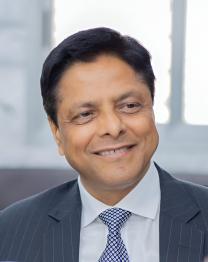
Dr. Ratnakar Adhikari is the Executive Director of the Executive Secretariat for the Enhanced Integrated Framework (EIF) at the World Trade Organization (WTO).
He also serves on the Board of the Automated System for Customs Data (ASYCUDA) at UNCTAD, Geneva, as Professorial Fellow at Aston Business School, Birmingham, and as Distinguished Fellow at the Institute for Public Value, Oxford.
His career spans leadership roles, including Chief Executive of South Asia Watch on Trade, Economics and Environment (SAWTEE) in Kathmandu, where he currently serves as Chair of the Board and Senior Adviser to Nepal's National Planning Commission. He has also worked as a Trade Programme Specialist at the United Nations Development Programme (UNDP) Regional Centre in Colombo, and as a Credit Manager at Nepal Indosuez Bank Ltd. (formerly a member of Crédit Agricole, France), Kathmandu.
He holds a Ph.D. from the University of Warwick, a Master of International Law and Economics from the World Trade Institute, and a Master of Commerce from the University of Delhi. He specializes in international trade and investment, technology and innovation, and development finance. He has co-authored eight books, numerous peer-reviewed articles, and over 200 op-eds from the perspective of the least developed countries.
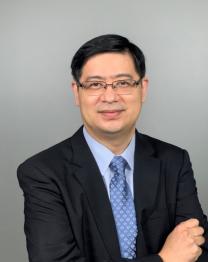
Professor Xiaowen Fu is the Head of Department and Professor in Engineering Management at the Department of Industrial and Systems Engineering, the Hong Kong Polytechnic University.
His main research areas include engineering management, data analytics, transport and logistics, which cover issues such as competition policy and government regulation, efficiency benchmarking, operation management, transport demand modelling and industrial organization.
He has been the principal investigator of close to 30 research grants, the guest editor of 9 journal special issues, and the author of more than 150 journal articles. He is the Editor-in-Chief of the journal, Case Studies on Transport Policy, and associate editor of the book series “Advances in Airlines Economics”.
Prof. Fu has provided advisory and economic modeling services to many organizations such as the Boeing Commercial Aircraft, New Zealand Commerce Commission, Australian Competition and Consumer Commission, Hong Kong Transport and Housing Bureau, Japan Rail (East), and OECD. He is the director of the Behavior and Knowledge Engineering Research Center, founding chair of the Maritime Economy and Policy stream of the World Transport Convention, and an honorary professor of the University of Sydney Business School.
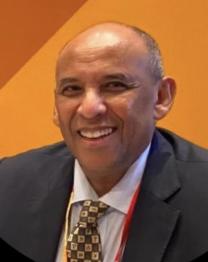
Tesfachew is currently Senior Advisor on Economic Transformation in Africa at the Tony Blair Institute for Global Change (TBI).
Prior to assuming his present position, Tesfachew was the Managing Director of the UN Technology Bank for Least Developed Countries (LDCs), based in Türkiye, and before that Director of the Division for Africa and LDCs at the United Nations Conference on Trade and Development Organization (UNCTAD), where he was responsible for the organization’s policy and capacity-building-related support to 89 developing countries, including African, Landlocked and Small Island economies. In this capacity, Tesfachew was responsible for preparation of two major annual reports namely, the Economic Development in Africa Report and The Least Developed Countries Report.
He has over 35 years of work experience in national and international development issues focusing mainly on trade, investment, industrial and technology policies and their interface with trade policies. In 2018, Tesfachew was appointed, by the Secretary General of United Nations as a member of the UN Committee for Development Policy and, more recently, to the Governing Board of the UN Technology Bank for the LDCs. He is also a member of the AfCFTA’s Trade and Industrial Development Advisory Council. In 2023, he was appointed as Adjunct Professor at the Nelson Mandela School of Public Governance, University of Cape Town, South Africa.
Tesfachew holds a BA and MA in Economics from the University of Lancaster and an MPhil and a PhD in Economics from the Institute of Development Studies, University of Sussex, UK. He has authored and co-authored on a range of topics.
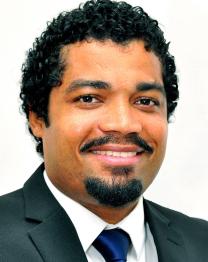
Dr. Gilson Pina is National Director for Planning at the Ministry of Finance of Cabo Verde, where he has led national planning and economic strategy since 2019.
He is also Vice President of the Board of Directors of Caixa Económica de Cabo Verde.
Before assuming his current positions, Dr. Pina served as Economic Adviser to the Deputy Prime Minister and Minister of Finance from 2016 to 2019.
Dr. Pina holds a Ph.D in Economics jointly from the University of Minho and the University of Coimbra.



